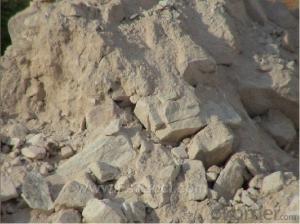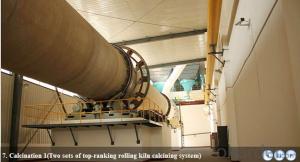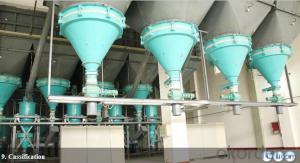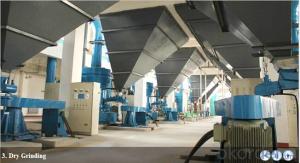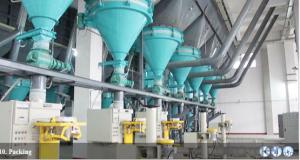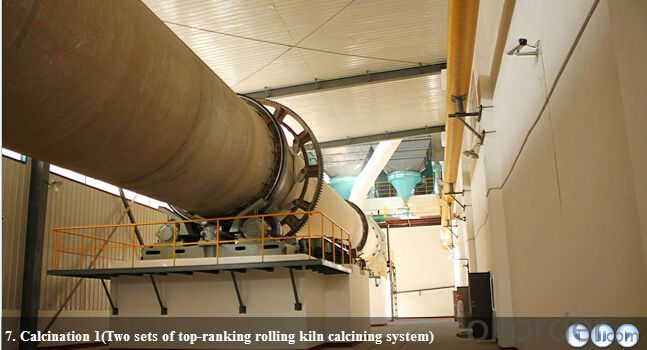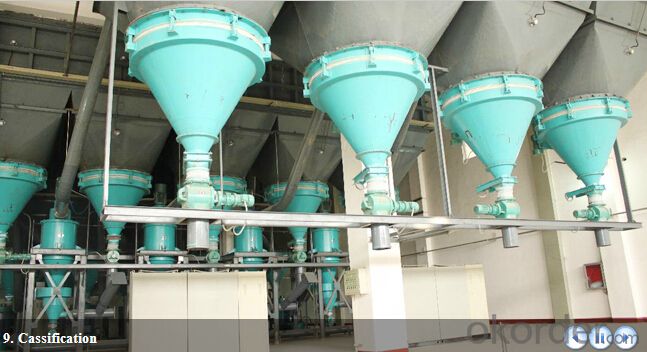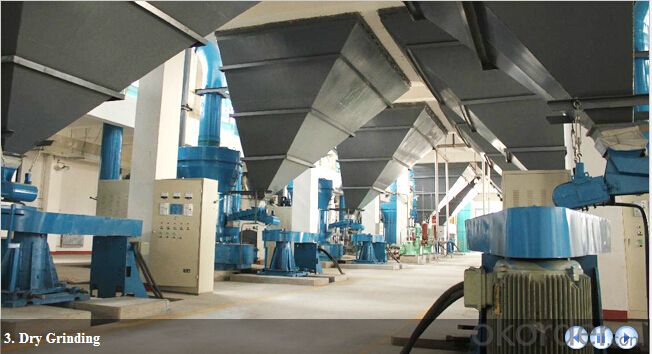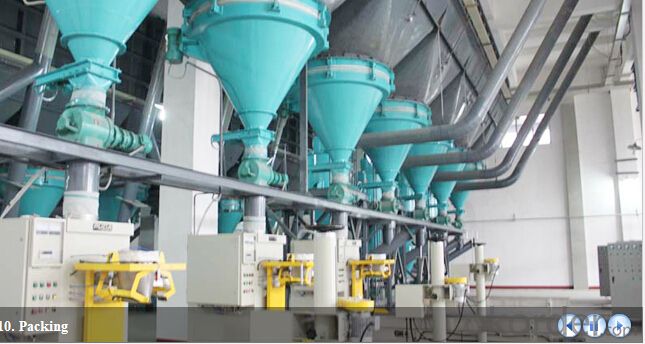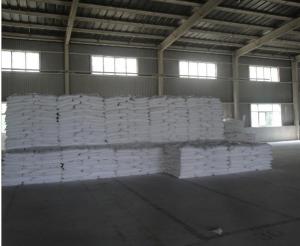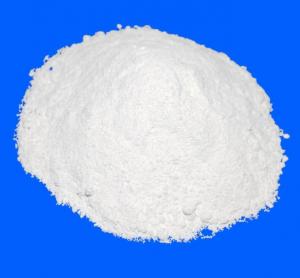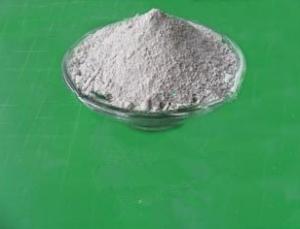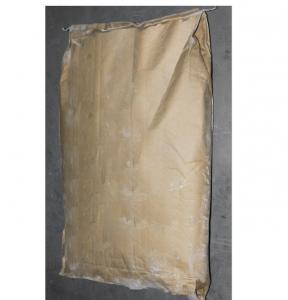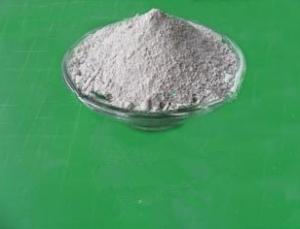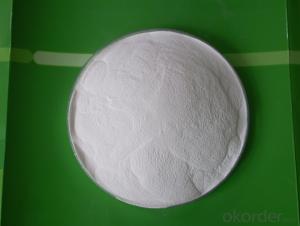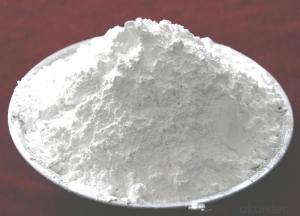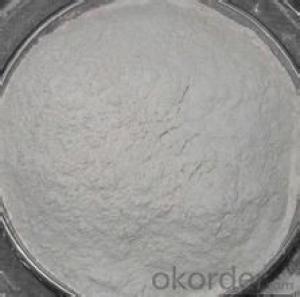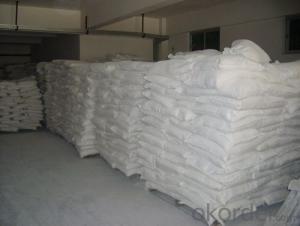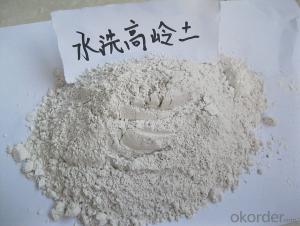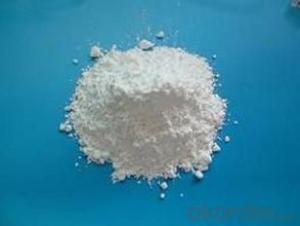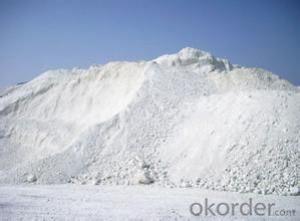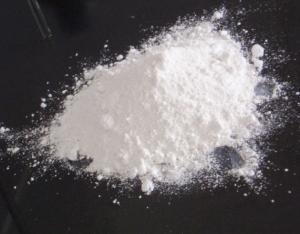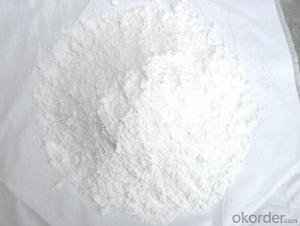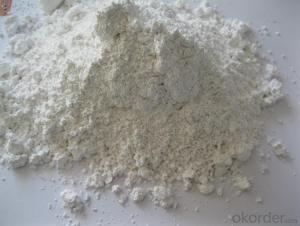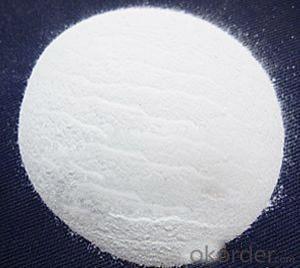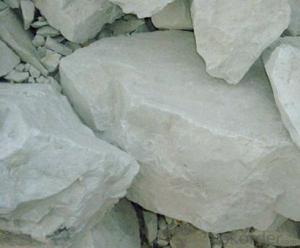CALCINED KAOLIN FOR COATING Quality Under GB
- Loading Port:
- Tianjin
- Payment Terms:
- TT OR LC
- Min Order Qty:
- 25 m.t.
- Supply Capability:
- 12000 m.t./month
OKorder Service Pledge
OKorder Financial Service
You Might Also Like
1. Benefits and Application
The GB-CK series of Kaolin based pigments are produced through delamination,
calcination and classification. The well-controlled processes ensure the GB series have no coarse particles and maintains an absolute minimum of 325 mesh residue, so the end user can achieve a high Hegman grind. The GB series pigments also have high brightness, strong hiding powder and superior dispersibility, and it is widely applied in latex paint, powder coating and electrophoresis coating.
Its main benefits are:
It’s the best extender of titanium dioxide with excellent opacity that can
improve efficiency and cut costs by partly replacing titanium dioxide;
It can easily disperse in water based systems;
It offers superfine particle and with excellent anti-settling property; It is inert to most acids and
alkaline at ambient temperature and offers good anticorrosive capabilities.
2. Typical Physical Properties
Item | GB-CK90 | GB-CK92 |
Brightness(T457) | 90.5%min | 92%min |
Particle Size (0-2micron)% | 50+/-2 | 60+/-5 |
Particle Size (0-10micron)% | 94% | 97% |
Refractivity | 1.62 | 1.62 |
Screen residue (325 mesh %) | 0.01max | 0.01max |
Oil Absorbency (g/100g) | 35+/-5 | 50+/-5 |
Dispersion (micron) | 55max | 50max |
pH | 5.5-7.0 | 5.5-7.0 |
Bulk Density (kg/m3) | 600 | 500 |
Specific Gravity (kg/m3) | 2600 | 2600 |
Moisture (%) | 0.5max | 0.5max |
3. Typical Chemical Properties
SiO2(%) | Al2O3(%) | Fe2O3(%) | TiO2(%) | CaO(%) | MgO(%) | CuO(%) | K2O(%) | Na2O(%) | MnO(%) |
52+/-2 | 45+/-2 | 0.50max | 1.5max | 0.4max | 0.2max | 0.004max | 0.05max | 0.15max | 0.004max |
4.Application
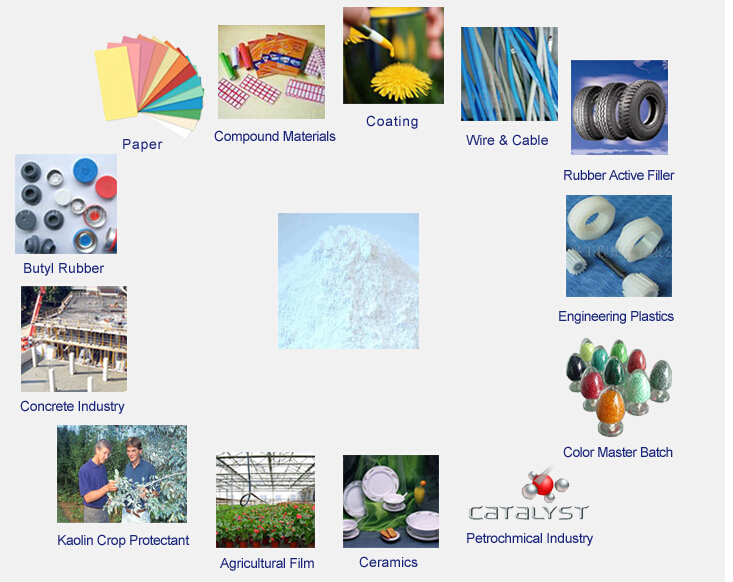
- Q: There is a kind of kaolin powder used for making cables. It does not sink in water. It does not damp with a stick. It wants to know what is added in it
- I estimate that this has been modified by kaolin powder, and is modified by aluminate, the aluminate by high speed modifier modified kaolin is insoluble in water, and suspension.
- Q: How to remove the kaolin from the stone?
- Kaolin has strong acid resistance, but its alkali resistance is poor. Try using this nature!
- Q: How to use washed kaolinWashed kaolin in the paper-making process how to use, where China's kaolin more suitable point? Which home is the biggest?
- In the paper, according to their actual situation to kaolin pre dispersed or other materials together in a mixing tank. When in the pre dispersion in dispersion process just add a little dispersant (sodium polyacrylate or other organic dispersant) can achieve the desired results.
- Q: Is kaolin a soil or a rock?
- Commonly known as kaolin clay, kaolinite or halloysite is the main mineral components of soft clay. Named after the first discovered in Jingdezhen 45 km east of the East mountain.
- Q: I have kaolin, which is grey. It burns red. Do you need it?
- And mainly hematite. I suggest you increase the whiteness after extracting hematite. After sintering is red kaolin, as ceramic soil, not many people, and the price can not go up, unless someone for the special use of the soil, as the base material is difficult to sell.
- Q: How to distinguish the good or bad of kaolin?
- Kaolin is based ceramic preform molding, has good plasticity and binding, can effectively reduce the deformation and cracking of the embryo, with high fire resistance and burning degree, can enhance the mechanical strength, can improve the thermal stability and chemical stability and sintering properties, good suspension property and adsorption in ceramics in the process of color glaze. The product also has three oxidation, two aluminum content, high iron, manganese, titanium and other harmful impurities, low ore, ore and concentrate quality stability, etc., is a high quality kaolin.
- Q: Kaolin calcining temperature
- Also known as clay kaolin clay, clay, generally translated, is a content of kaolinite origin rocks have reached more than the amount of which is the final product of granite and feldspar weathering, is the main component of hydrated aluminium silicate. Catalpo rubber old called crushing natural product is refined, the price is low.
- Q: This is a stone dug with kaolin. Does anyone know what it is?
- Kaolin is by weathered granite and granite residual weathering, these residues, can be seen as granite in bones. A small hard rock in a granitic body that is hard to weathered.
- Q: Who knows kaolin? Please, great God!
- Kaolinite is a product of natural alteration of feldspar and other silicate minerals and is an hydrous aluminosilicate. It also includes dickite, nacrite and halloysite and similar components but amorphous allophane, so they belong to a called clay mineral.
- Q: What are the requirements for the whiteness of calcined kaolin in the coating formula?
- Whiteness stability is very important, if the Baidu volatility assembly affects the optical properties of the coating, resulting in the same batch of products obvious color difference.
Send your message to us
CALCINED KAOLIN FOR COATING Quality Under GB
- Loading Port:
- Tianjin
- Payment Terms:
- TT OR LC
- Min Order Qty:
- 25 m.t.
- Supply Capability:
- 12000 m.t./month
OKorder Service Pledge
OKorder Financial Service
Similar products
Hot products
Hot Searches
Related keywords
